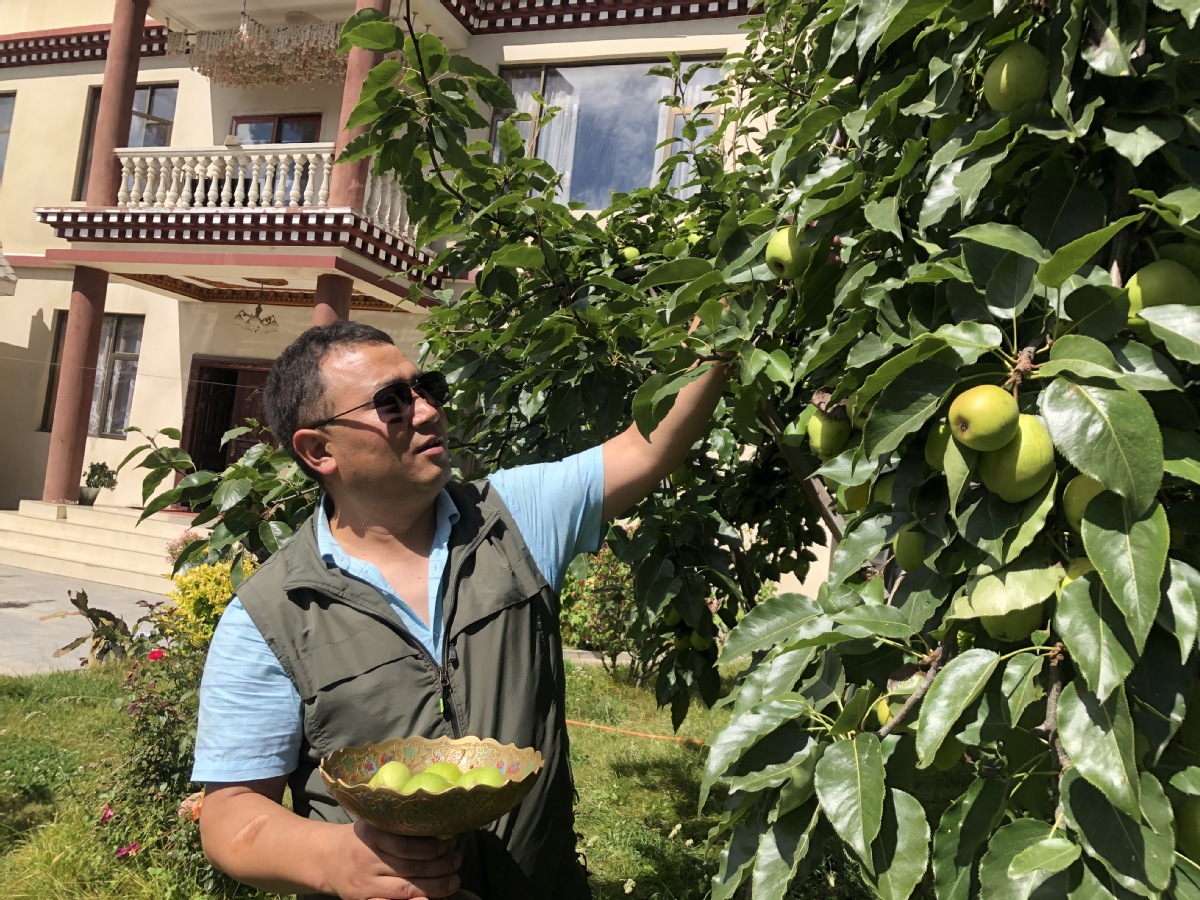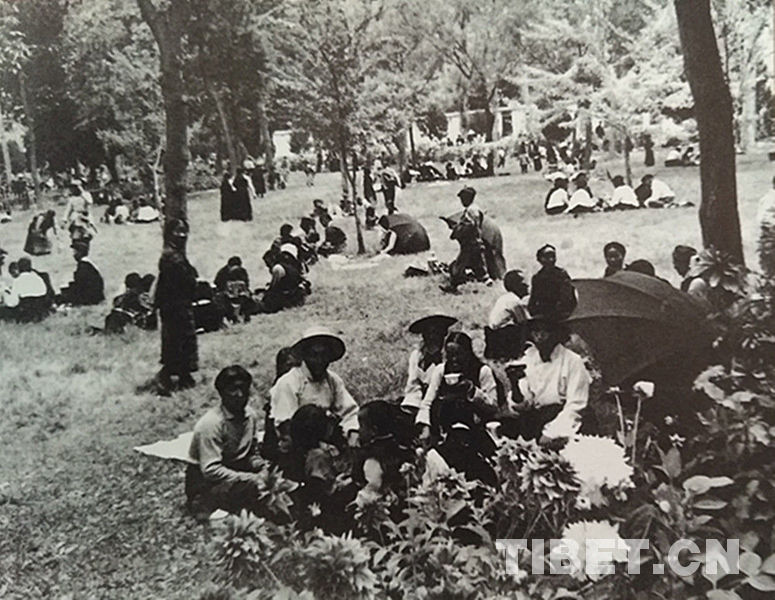Ex-lumberman shows way to prosperity

Norbu Tsering picks pears at his home. [Photo by Palden Nyima / chinadaily.com.cn]
Norbu Tsering led his fellow villagers to start a transportation business 20 years ago. Since then, his village has become one of Tibet's wealthiest.
Located in Tibet's Nyingchi city, Bagche village was known as "Dongfeng Truck Village" 10 years ago. Most households owned a Dongfeng truck, a major Chinese brand.
Norbu Tsering and his fellow villagers were in the logging business in the 1990s, and they earned a living by selling the timber in other parts of the Tibet autonomous region.
"I was in the logging business after graduating from junior middle school. The roads were terrible at that time, and it was dangerous to drive a heavy truck on the mountain roads," the 42-year-old recalled.
"We could only earn an average family income of 3,000 yuan ($433) per year, and there was no idea of savings at that time."
In the late 1990s, logging was banned because of concerns over the environment, and Norbu Tsering had to seek another business. That was the transportation business supplying construction sites.
As city construction work was expanding in Nyingchi city at the time, there was major demand for construction materials, such as sand and rocks, and Norbu Tsering seized the opportunity. He converted his flatbed trailer into a dump trailer, and kicked off a 20-year journey of construction site transportation, together with another villager.
Using his breakthrough as a model, other residents began to follow in his footsteps, and became wealthy as a result.
"At the beginning, many villagers had their doubts about the business because wages are paid only at the end of the year. But gradually they accepted it," Norbu Tsering said.
"The policy is really good, and village leaders do a good job. If one takes the opportunity, there are many chances available to earn more money."
Currently, transportation work is their main source of income. Villagers in 73 household also own construction machines such as loaders, excavators, dump trucks. Some own expensive cars.
Residents have also developed a collective economy, renting land for logistics warehouses and markets for construction materials. Tourism is also developing.
"Transportation has brought prosperity to our village," Norbu Tsering said. "The annual average income generated by the transportation business jumped from around 200,000 yuan in the 2000s to more than 600,000 yuan now. In addition to a good policy environment, hard work is the soul of every success."
Tibet Stories

Livestreamer showcases beauty of Tibet
Unlike her peers in the city who use trendy cafes, restaurants and shopping malls for their ...

